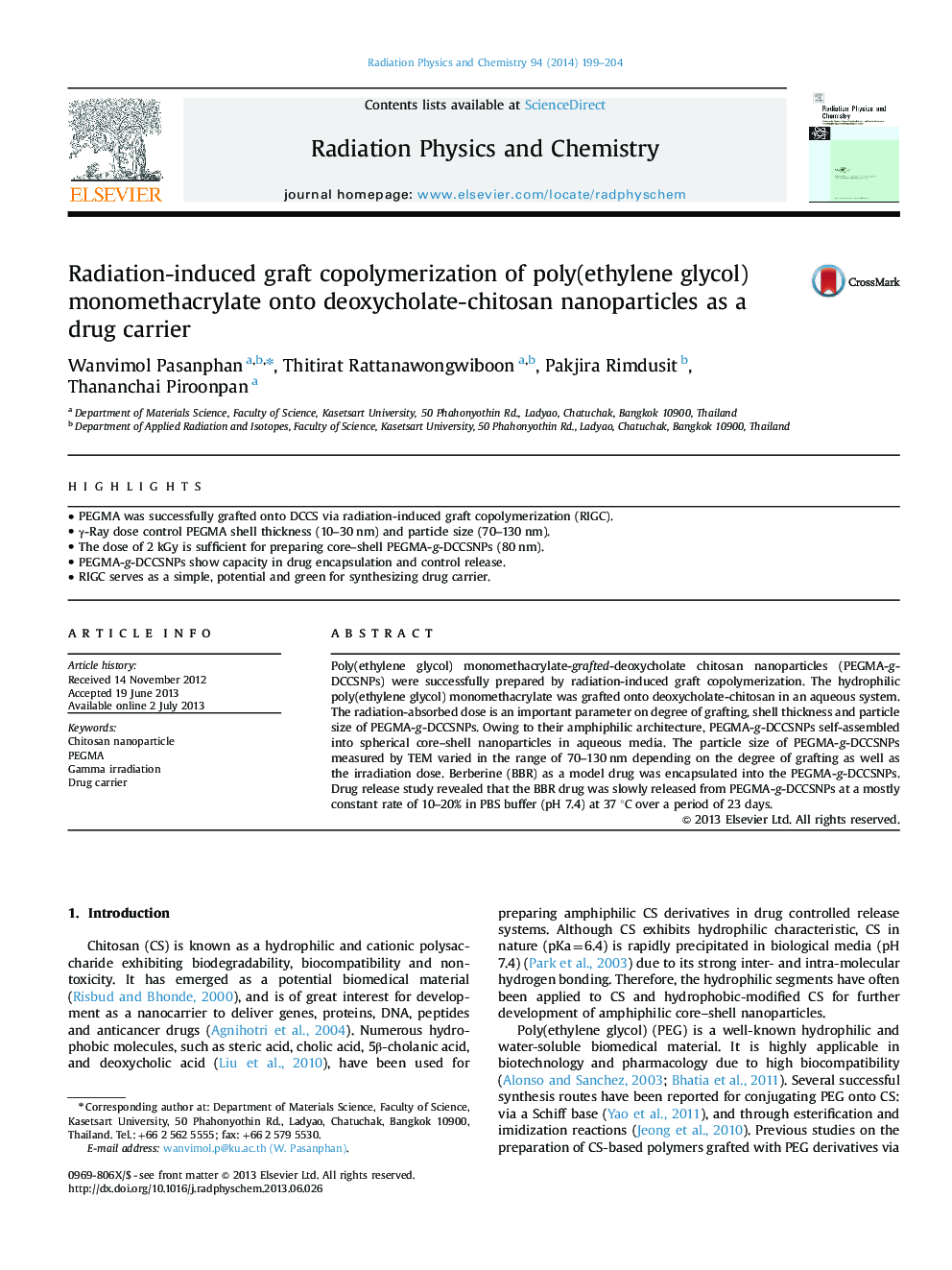| کد مقاله | کد نشریه | سال انتشار | مقاله انگلیسی | نسخه تمام متن |
|---|---|---|---|---|
| 1891383 | 1533530 | 2014 | 6 صفحه PDF | دانلود رایگان |

• PEGMA was successfully grafted onto DCCS via radiation-induced graft copolymerization (RIGC).
• γ-Ray dose control PEGMA shell thickness (10–30 nm) and particle size (70–130 nm).
• The dose of 2 kGy is sufficient for preparing core–shell PEGMA-g-DCCSNPs (80 nm).
• PEGMA-g-DCCSNPs show capacity in drug encapsulation and control release.
• RIGC serves as a simple, potential and green for synthesizing drug carrier.
Poly(ethylene glycol) monomethacrylate-grafted-deoxycholate chitosan nanoparticles (PEGMA-g-DCCSNPs) were successfully prepared by radiation-induced graft copolymerization. The hydrophilic poly(ethylene glycol) monomethacrylate was grafted onto deoxycholate-chitosan in an aqueous system. The radiation-absorbed dose is an important parameter on degree of grafting, shell thickness and particle size of PEGMA-g-DCCSNPs. Owing to their amphiphilic architecture, PEGMA-g-DCCSNPs self-assembled into spherical core–shell nanoparticles in aqueous media. The particle size of PEGMA-g-DCCSNPs measured by TEM varied in the range of 70–130 nm depending on the degree of grafting as well as the irradiation dose. Berberine (BBR) as a model drug was encapsulated into the PEGMA-g-DCCSNPs. Drug release study revealed that the BBR drug was slowly released from PEGMA-g-DCCSNPs at a mostly constant rate of 10–20% in PBS buffer (pH 7.4) at 37 °C over a period of 23 days.
Journal: Radiation Physics and Chemistry - Volume 94, January 2014, Pages 199–204